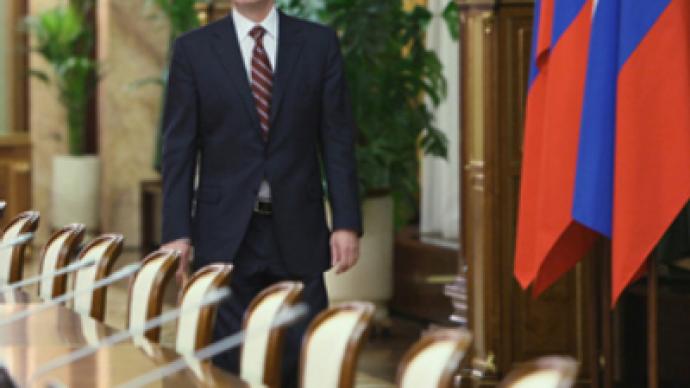President's nominee would be "excellent" Moscow mayor

Sergey Sobyanin will solve the city’s acute problems and change the way of the administration, The Kremlin’s First Deputy Chief of Staff, Vladislav Surkov, has said.
President Dmitry Medvedev on Friday nominated Deputy Prime Minister and the government’s Chief of Staff, Sergey Sobyanin, for Moscow mayor.
With the arrival of a new mayor, the principle of government in the capital city will essentially change, believes the First Deputy Head of the presidential administration, Vladislav Surkov. The fully-fledged cooperation of the mayor’s office with the federal center will be established, which is much needed for solving the numerous problems of the city, he told Vzglyad online newspaper.
According to him, the previous mayor, Yury Luzhkov, “was politically generated by radical publicist Gavriil Popov in the distant 1990s, when relations of the federation and its subjects were not smooth, to speak mildly.” In many ways, the city government opposed the federal center, Surkov added.
“In fact, the previous city government’s behavior was extremely provincial,” he noted. It was reflected in the methods of administration and architectural absurdities. Attacks against the federal authorities were not infrequent, he noted, specifying the city government’s ideas: “to put up Stalin’s portraits across Moscow, return direct election of governors and demolish the Rechnik neighborhood.”
Surkov stressed that Sobyanin is President Medvedev’s nominee and that Sobyanin was responsible for the president’s electoral campaign in 2008. At the same time, he said Sobyanin “has very valuable experience of work in [Prime Minister] Vladimir Putin’s administration and government,” he noted. For Sobyanin, “the constitutional principle of unity of executive power, the unity of its federal and regional levels is not simply words,” Surkov said.
The role of the ruling United Russia party in Moscow’s political life will considerably increase with the arrival of the new mayor, the Kremlin’s first deputy chief of staff said. “The quality of influence rather than its quantity will rise,” he noted.
Sobyanin is a representative of United Russia’s political leadership and a member of the party’s supreme council, who is capable of “strengthening the party’s positions in Moscow,” Surkov noted. By choosing a top manager of United Russia, “President Medvedev actually stressed that he has full confidence in the party,” Surkov added.
The political landscape of the capital city will become more complex in the future, Surkov said. “The president once noted at a meeting of the state council that for such a multidimensional city as Moscow, two parties in the parliament will not be enough with a lapse of time.” The number of deputies in the Moscow City Duma will also be more than current 35, he said.
Although some representatives of the Fair Russia party filed a complaint in court against the irregularities at the previous city parliament elections, Surkov made it clear that “Medvedev has affirmed the legitimacy of the Duma by submitting to it a candidacy of a new mayor.”
The head of the presidential administration predicts that ““nothing” will change in the city authorities’ policies toward street protests and rallies. For many years, the actions of the city’s government, including those regarding rallies at Triumfalnaya Square, were “legal and correct,” Surkov noted.
“Any new authorities have always demonstrated generosity,” Surkov said. “If 200 people in the multimillion Moscow want to gather exactly on the 31st day of a month, let them gather. I’m certain that the new mayor will find a needed solution, and it will be solution in line with the president’s policy.”
“However, the opposition should not get a feeling of permissiveness,” Surkov said. “Violation of public order will always be stopped.”
At the same time, the new mayor will have “more acute problems,” to deal with, Surkov said. He highlighted corruption, traffic jams, ecology, housing and the communal services sector. “The president has proposed to the city an excellent mayor to solve, first of all, these urgent issues.”
Sobyanin was an authoritative member of the Federation Council, the upper house of the parliament, and headed a regional parliament, Surkov said. “He worked at the office of a presidential envoy, and was one of the best Russian governors. He was my immediate chief at the presidential administration, a good chief, and a very good colleague and partner at the presidential commission on modernization. He has always achieved good results, and now he will also manage to do it.”
The Moscow City Duma is expected to consider the presidential nomination and vote on Sobyanin’s candidacy later this week.
Sergey Borisov, RT












